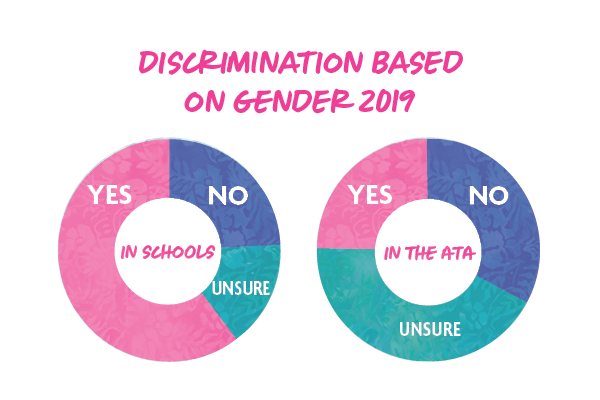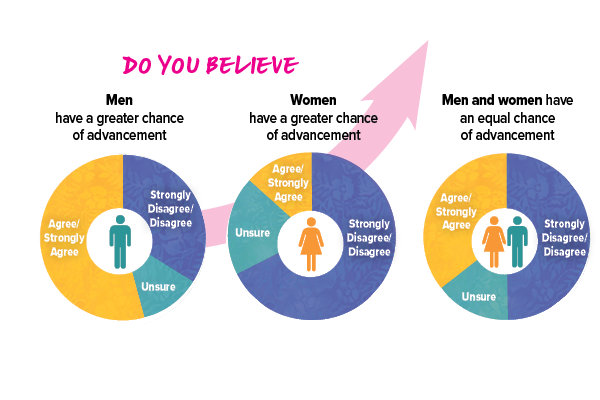While the ATA has been inquiring into questions of gender equity in the profession for decades, in 2018 the ATA renewed its focus on women in leadership through the establishment of a subcommittee of the Diversity, Equity and Human Rights Committee.
The subcommittee — which later became the Women in Leadership (WIL) Committee — created a needs assessment survey, conducted in 2019, to assess the perception of gender-based discrimination in the teaching profession, barriers to women in leadership for both school divisions and the Association, and possible supports for women in the teaching profession.
The survey revealed evidence of gender-based discrimination in schools and the ATA.
Participant feedback revealed three main sources of discrimination: normative gatekeeping, gender-based stereotyping and the impact of family responsibilities on career progression.
In addition to perceiving gender-based discrimination in school jurisdictions and the Association, participants identified other barriers to leadership for women in the profession, including a lack of time, resources and encouragement to develop as leaders.
As for supports experienced, participants identified encouragement from colleagues, family and friends for involvement in the Association or school leadership as the top support.

barriers to leadership for women in the profession include a lack of time, resources and encouragement to develop as leaders.
When asked about formal supports the ATA could offer for growing women’s leadership capacity in Alberta, two-thirds of participants identified the development of networks of support and mentorship across the province for women leaders.
With this data in mind, the WIL Committee provides policy recommendations that support the development of women’s leadership capacity, plans and organizes an annual summit, provides support to local WIL committees and disseminates women in educational leadership research.
Having awareness of and insight into the gender-based discrimination faced, the barriers experienced and the supports desired can lead to positive steps forward. Through network-building across the province, important conversations are emerging about the gendered nature of leadership and what can be done to support women in the profession to reach their leadership potential.

| Supports | Association Involvement |
School Leadership |
|---|---|---|
| I received encouragement from family and friends | 44.4% | 85.5% |
| I received encouragement from colleagues | 71.0% | 76.5% |
| I had access to cohort groups and training for leadership | 12.7% | 42.5% |
| I had access to mentorship opportunities | 18.3% | 32.5% |
Key terms
Normative gatekeeping is a concept arising from the literature that explains how individuals and organizations conceptualize who best represents a leader and the practices that reinforce the selection of types of leaders.
Gender-based stereotyping refers to social expectations of how men and women ought to operate in society.
Gender is not binary. For the purposes of the needs assessment study, however, woman denotes those in the profession who identify as female.


